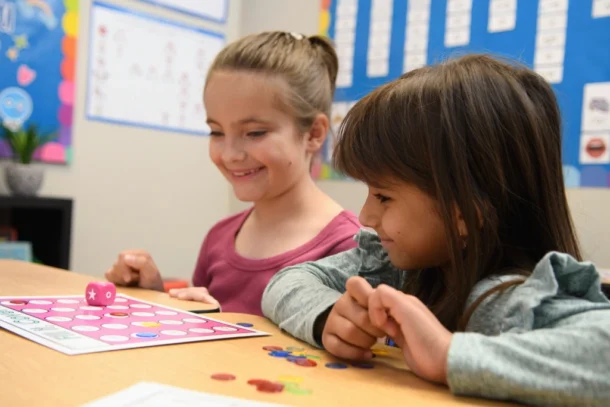Reading is a skill that serves as a foundation for lifelong learning and personal growth. Understanding the science of reading can help educators, parents, and students themselves improve reading abilities and strategies. The science of reading encompasses research from various fields such as cognitive psychology, linguistics, and education to uncover how we learn to read and how we can enhance this process.
In this article, we will explore key principles of reading science, delve into effective reading strategies, and discuss how these can be applied in educational settings.
What Is the Science of Reading?
The science of reading refers to a comprehensive, interdisciplinary body of research about how humans learn to read and the best practices for teaching reading. This field combines insights from neuroscience, cognitive psychology, and education to develop evidence-based methods for improving reading skills.
The Importance of Phonemic Awareness
Phonemic awareness is the ability to hear, identify, and manipulate individual sounds—phonemes—in spoken words. This skill is crucial for learning to read because it is the foundation for understanding the relationship between sounds and their corresponding letters or letter combinations.
Children with strong phonemic awareness can better decode words, making it easier for them to read fluently and comprehend text. Educators can foster phonemic awareness through activities such as rhyming games, segmenting words into sounds, and blending sounds to form words.

The Role of Phonics in Reading
Phonics involves teaching the relationship between letters and their sounds. This approach helps readers decode unfamiliar words by sounding them out. Understanding phonics is essential for developing reading fluency and accuracy.
Explicit Phonics Instruction
Explicit phonics instruction involves teaching children specific rules about letter-sound relationships. This method is systematic and sequential, ensuring that students learn to apply phonics rules to both familiar and new words. Research shows that explicit phonics instruction is more effective than implicit methods, where children are expected to learn these relationships through exposure alone.
Phonics in the Classroom
Incorporating phonics into classroom instruction can be done through activities like letter-sound matching games, word-building exercises, and guided reading sessions. By consistently practicing these skills, students can become more confident and proficient readers.
Vocabulary Development
A robust vocabulary is essential for reading comprehension. The more words a reader knows, the easier it is to understand and engage with a text. Vocabulary development involves both the direct teaching of new words and the encouragement of word-learning strategies.
Direct Vocabulary Instruction
Direct vocabulary instruction can be achieved through activities such as introducing new words in context, discussing word meanings, and using visual aids to reinforce understanding. Providing students with opportunities to use new vocabulary in speaking and writing can also enhance retention.
Encouraging Word-Learning Strategies
Teaching students strategies for independently learning new words is crucial for continued vocabulary growth. These strategies include using context clues, analyzing word parts (such as prefixes and suffixes), and consulting dictionaries or thesauruses.
The Importance of Reading Comprehension
Reading comprehension is the ability to understand and interpret the meaning of a text. It is the ultimate goal of reading instruction, as it allows readers to extract knowledge and insights from written material.
Strategies for Enhancing Comprehension
Several strategies can improve reading comprehension, including:
- Activating Prior Knowledge: Encouraging students to connect new information to their existing knowledge base.
- Visualization: Teaching students to create mental images of the text to enhance understanding.
- Questioning: Promoting critical thinking by having students ask and answer questions about the text.
Using Graphic Organizers
Graphic organizers, such as story maps and Venn diagrams, can help students organize information and visualize relationships between concepts. These tools support comprehension by making abstract ideas more concrete and accessible.

Fluency: Bridging Decoding and Comprehension
Reading fluency is the ability to read text accurately, quickly, and with expression. Fluency serves as a bridge between decoding words and comprehending their meaning. Fluent readers can focus their attention on understanding the text rather than decoding each word.
Building Reading Fluency
Strategies for building reading fluency include repeated reading, where students read the same text multiple times to improve speed and accuracy, and guided oral reading, where a teacher provides feedback and support as students read aloud.
The Role of Motivation in Fluency
Motivation plays a significant role in developing reading fluency. Encouraging a love for reading through choice, exposure to diverse genres, and creating a supportive reading environment can inspire students to practice and improve their skills.
Applying Reading Science in Education
Understanding the science of reading can transform the way educators approach teaching. By incorporating research-backed strategies into their instruction, teachers can create a more effective learning environment.
Professional Development for Educators
Educators can benefit from professional development opportunities focused on the science of reading. Training sessions, workshops, and collaborative learning communities can provide teachers with the knowledge and skills needed to implement effective reading strategies.
Involving Parents in the Process
Parents play a crucial role in supporting their children’s reading development. Educators can encourage parental involvement by providing resources, hosting workshops, and fostering open communication about reading strategies and progress.
Conclusion
The science of reading offers valuable insights into how we learn to read and how we can enhance this essential skill. By understanding key principles such as phonemic awareness, phonics, vocabulary development, comprehension, and fluency, educators, parents, and students can work together to create a more effective and engaging reading experience.
Implementing evidence-based reading strategies in educational settings can lead to improved reading outcomes and a lifelong love for reading. As we continue to explore and apply the science of reading, we can empower individuals to unlock the full potential of their literacy skills.
Boost Your Child’s Reading Skills with PDX Reading Specialist!
To gain a deeper understanding of a child’s reading abilities and to identify personalized strategies for improvement, consider reaching out to PDX Reading Specialist. We offer comprehensive assessments that provide valuable insights and tailored recommendations. Contact us today to schedule an appointment and begin transforming reading challenges into opportunities for success. Together, let’s pave the way for a brighter literacy future.

